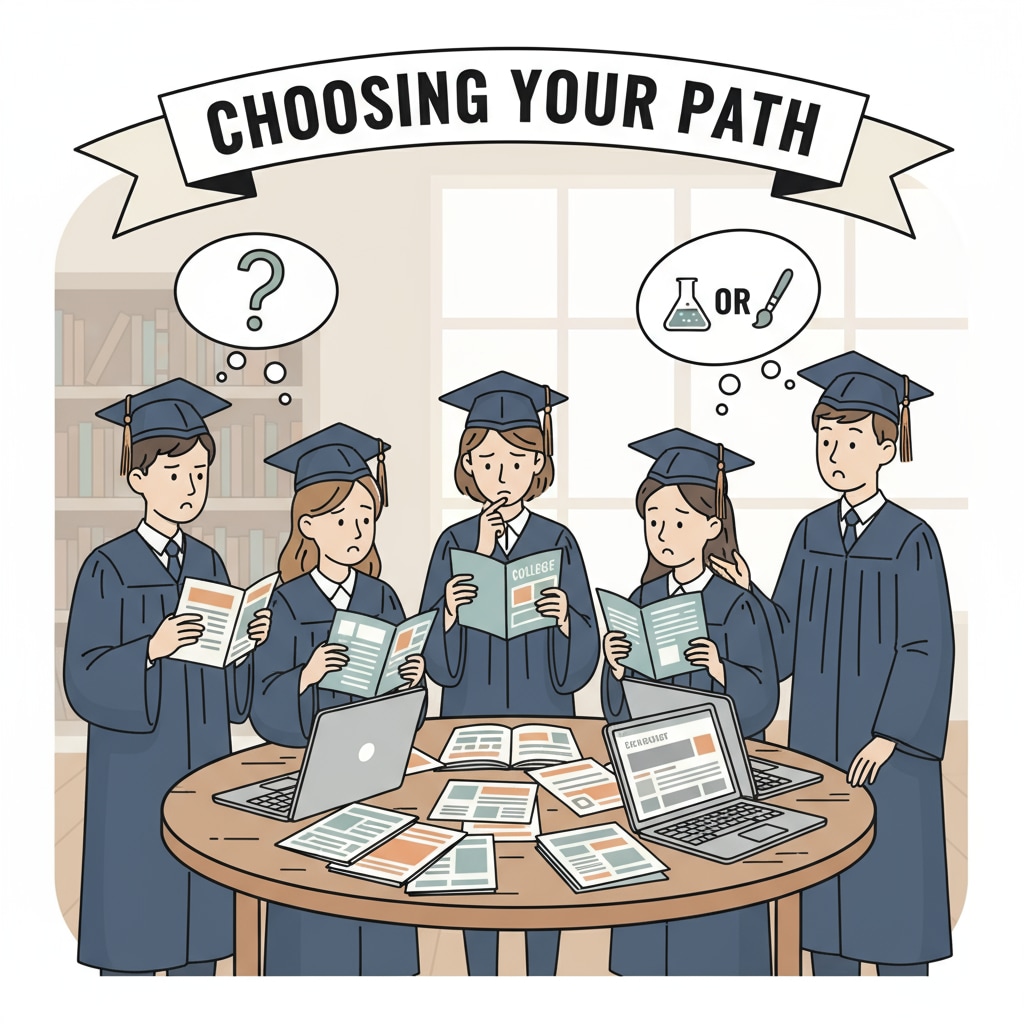Career choices, employment prospects, and higher education are crucial aspects that high school graduates grapple with when it comes to planning their future. The transition from high school to university is a significant milestone, and the decisions made during this period can have a profound impact on one’s professional life. For instance, choosing the right university major is like setting the course for a journey, and it directly relates to future employment opportunities. However, many high school graduates find themselves in a maze of confusion when making these decisions.

The Dilemma of University Major Selection
One of the primary challenges high school graduates encounter is selecting a university major. The vast array of options available can be overwhelming. There are traditional majors like liberal arts, science, and engineering, as well as emerging fields such as data science and artificial intelligence. On one hand, students may be attracted to popular majors with promising employment prospects, such as computer science. According to the Bureau of Labor Statistics, jobs in this field are expected to grow significantly in the coming years. On the other hand, they might have personal interests in less mainstream subjects, but are worried about the limited job opportunities. For example, a student passionate about art history may be hesitant to choose this major due to concerns about finding a well-paying job.

The Allure and Uncertainty of the Technology Industry
The technology industry has become an attractive destination for many high school graduates. With the rapid development of technology, it offers numerous job opportunities and high salaries. Fields like software development, cybersecurity, and digital marketing are in high demand. However, the technology industry is also highly dynamic. New technologies emerge constantly, and skills can quickly become obsolete. As a result, graduates need to be prepared for continuous learning and upskilling. For example, a graduate who enters the industry with a basic knowledge of programming may find that they need to learn new programming languages and frameworks to stay competitive. TechCrunch often reports on the latest trends and changes in the technology industry, highlighting the need for adaptability.
To break through these dilemmas, high school graduates can take several steps. Firstly, they should conduct in-depth research. This includes learning about different university majors, the curriculum, and the skills they will acquire. They can also explore the job market and understand the requirements of different industries. Secondly, gaining practical experience is essential. Internships, part-time jobs, or volunteer work can provide valuable insights into different fields. Finally, seeking advice from professionals, such as career counselors, alumni, or industry experts, can offer different perspectives and help in making more informed decisions. In conclusion, with careful planning and a proactive approach, high school graduates can navigate the challenges of career choices, employment prospects, and higher education, and find their way to a successful future. Readability guidance: The paragraphs are kept short to enhance readability. Lists could be used to summarize key points in each section. Passive voice is minimized, and transition words like “however”, “on one hand”, “on the other hand”, and “as a result” are used to connect ideas smoothly. Each H2 section has a clear focus related to the overall topic of high school graduates’ career planning.


